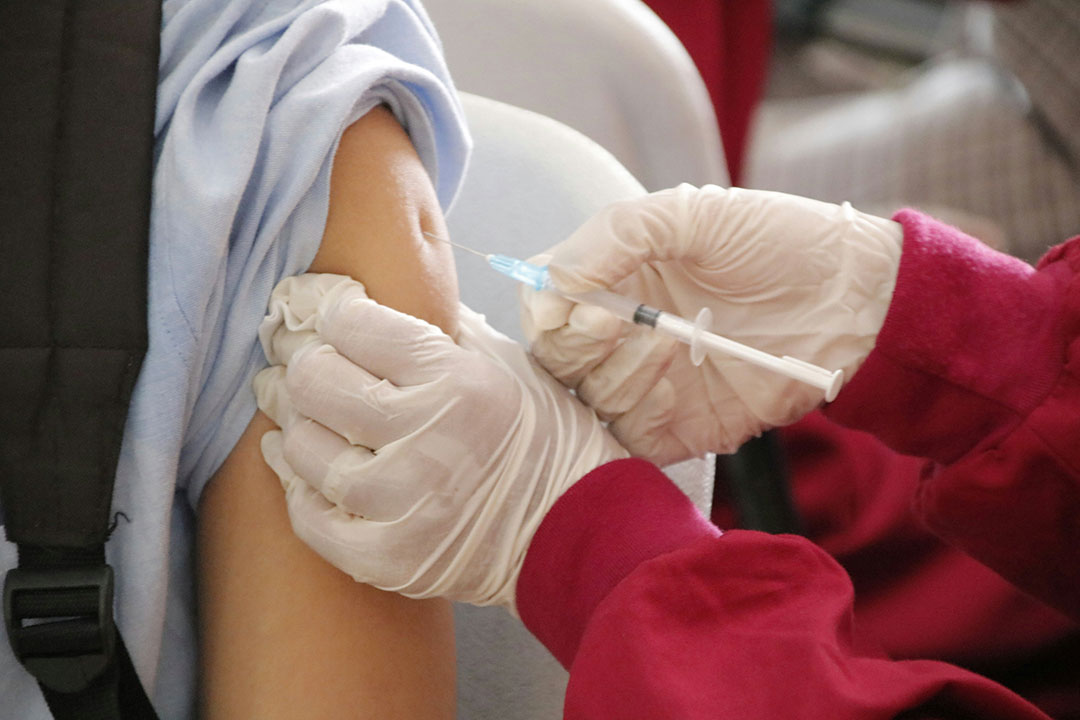
Medicine Cabinet
By Teodoro B. Padilla

Schools are places of growth and learning but they can also expose children to health risks. In the Philippines, these risks are magnified by two silent threats: infectious diseases and malnutrition. Nearly three in 10 Filipino children under five are stunted, compromising not only their physical growth but also their ability to learn. Without timely intervention through proper nutrition and vaccination, millions of children face setbacks that could last a lifetime.
At a recent Health Connect media forum themed “Vax to School: Building Healthy Learners with Vaccination and Nutrition,” health experts emphasized that children’s health, learning, and future success depend on the powerful combination of proper nutrition and timely immunization.
“Both vaccination and nutrition are indispensable in ensuring that children are not only protected from illnesses but are also able to learn, grow, and succeed,” said Dr. Eric Tayag, former Health Undersecretary and forum moderator.
Theresa A. Rivas, Nutrition Officer III of the National Nutrition Council (NNC) Calabarzon, illustrated the consequences of malnutrition by comparing brain scans of a healthy child and a stunted child. The scan of the stunted child revealed 40% less brain mass and a less developed temporal lobe or the part of the brain that supports memory, language, and understanding.
“This is why malnourished children sometimes struggle in school. It’s not because they are lazy or unwilling to learn, but because they are at a biological disadvantage,” Ms. Rivas explained.
She warned that the effects of stunting are irreversible after a child’s second birthday, with consequences lasting into adulthood. This is why the “first 1,000 days” from pregnancy to a child’s second year are crucial. Children who receive proper nutrition during this critical window are 10 times more likely to survive life-threatening diseases like measles and diarrhea, complete more years of education, earn higher wages as adults, and raise healthier families.
Nutrition and vaccination are deeply interconnected. While its primary aim is preventing diseases, immunization is also recognized as a nutrition-sensitive intervention. By protecting children from illnesses that contribute to or worsen malnutrition, vaccines support proper growth and development. In turn, well-nourished children respond more effectively to vaccines.
“By combining proper nutrition with timely immunization, we give children the best chance to grow well, stay safe, and succeed in school,” Ms. Rivas said. “Let’s start with good nutrition during the first 1,000 days and avail of health services such as vaccination to achieve optimal health for our children.”
Dr. Maria Cristina Alberto, board member of the Philippine Foundation for Vaccination (PFV) and founder of the Hope in Me Club, stressed the need to correct persistent misconceptions about vaccines.
“It’s not true that nutrition alone is enough to protect your child from illness. Even healthy kids can get sick, particularly with vaccine-preventable diseases,” Dr. Alberto explained.
She emphasized that vaccines provide long-lasting protection, with some — like those for measles, mumps, and rubella — conferring lifelong immunity after just a few doses, while others require booster shots before school entry. She also noted that immunization benefits extend beyond childhood, citing vaccines such as HPV and hepatitis B that protect against cancers later in life.
Dr. Alberto further explained that vaccine-preventable diseases can derail children’s education. For example, a child with chickenpox may miss two weeks of school, which can significantly affect performance. Meanwhile, malnourished children are more likely to die from infections that cause diarrhea and pneumonia, creating a vicious cycle where poor nutrition and disease reinforce one another.
Ensuring children’s health requires a collective effort. Dr. Allen Mallari, president of the Philippine Academy of Physicians in School Health, underscored the value of collaborative care where physicians, nurses, educators, allied health professionals, community leaders, and parents work together to meet children’s needs.
“Through collaborative care, we can support school-based initiatives like feeding programs or vaccination drives, ensuring that children grow up healthy and protected against diseases,” Dr. Mallari said.
Protecting Filipino children requires more than just individual effort. Parents must provide proper nutrition and ensure vaccination schedules are followed. Schools, communities, and health professionals must continue programs that safeguard children’s well-being. Government and private partners must sustain investments in child health.
By combining the power of nutrition and vaccination, we can raise a generation of learners who are healthier, stronger, and ready to build our nation’s future.
The Health Connect forum, co-organized by the Philippine Medical Association, the PFV, and the Pharmaceutical and Healthcare Association of the Philippines with support from Sanofi, recently received a Merit Award at the 21st Philippine Quill Awards for its role in advancing public health awareness. Since its launch at the height of the COVID-19 pandemic in 2020, Health Connect has provided a trusted platform where medical experts and journalists share accurate, timely health information with the public.
For more information about childhood vaccination and nutrition, consult your doctor.
Teodoro B. Padilla is the executive director of Pharmaceutical and Healthcare Association of the Philippines which represents the biopharmaceutical medicines and vaccines industry in the country. Its members are at the forefront of developing, investing and delivering innovative medicines, vaccines and diagnostics for Filipinos to live healthier and more productive lives.